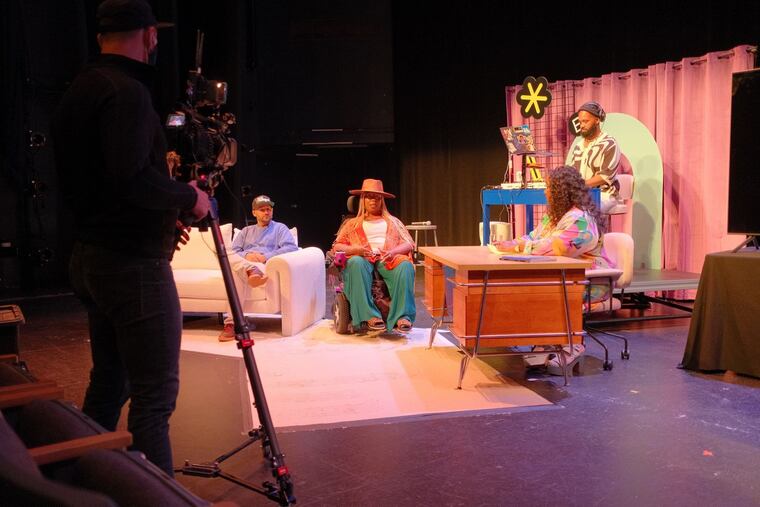‘There is so much pride in our community’: Disabled filmmakers speak at BlackStar Film Festival
Disability justice, moderator Andraéa LaVant said, is about centering those who are marginalized within the disability community: Disabled people of color.

Filmmaker Natasha Ofili’s guiding light in her creative process is to break the rules.
“When you are creating a story, my story, there’s no rules. There’s no limitations because living with a disability, you feel there’s always restrictions, and it just makes you want to give up,” said Ofili, who is deaf, through an American Sign Language interpreter.
Ofili was speaking as part of a virtual BlackStar Film Festival panel Sunday afternoon about disability justice and filmmaking. She was one of four Black and Latinx disabled filmmakers on the panel, moderated by Andraéa LaVant, a disability justice consultant and impact producer of Crip Camp: A Disability Revolution, a 2021 Netflix documentary about a summer camp for teens with disabilities.
Disability justice, LaVant said, is about centering those who are marginalized within the disability community: Disabled people of color.
The panel emphasized accessibility for participants: Captions and an ASL interpreter were made available, and each panelist began by describing their image on screen. LaVant spoke of her “sherbet-colored” braids; Ofili described herself as a dark-skinned Black woman with a curly Afro. “I want to emphasize that Afro,” she said. And LaVant ended the panel, even though there were lingering audience questions, when the captioner had to leave: “We’re not gonna not practice what we preach,” she said.
» READ MORE: Blackstar Festival films shine light on health equity
The filmmakers spoke about how their disabilities have shaped their approaches to media making.
Reveca Torres has lived with a spinal cord injury since the age of 13. Torres, co-director of the disability-focused ReelAbilities Film Festival Chicago, said she used to think she had to separate her disability from her art-making but later realized she had to create her own path — mixing her different identities as a disabled person and an artist.
For her, art has always been a collaboration.
“I have limitations in my hands, I use a wheelchair, a power chair, so I don’t ever really create anything on my own, whether it’s [with] a caregiver or a friend or an assistant,” she said,
Torres never thought she could make films because she couldn’t hold the camera, but with the help of a friend, she learned how to mount a camera to her wheelchair.
Andres “Jay” Molina had a similar experience when making his film, Fire Through Dry Grass, about a group of disabled Black and brown artists living in a New York City nursing home during COVID. He and his team used GoPros to chronicle their experiences, and it was Molina, who became disabled five years ago, who helped strap the GoPros to his crew’s wheelchairs.
These are examples of interdependence, an important concept in the disability justice community, and ingenuity, LeVant said.
“Everyday we are working with products that aren’t built for us,” she said, and that can result in art that is beautiful and unique.
Ofili spoke of the importance of hiring disabled film crews — her film, The Multi, included eight crew members who are deaf and hard of hearing, and two who are hearing — and letting disabled people tell their own stories. Often times, people who are not disabled are making these films.
“They go to film festivals and they speak for us,” she said. “It’s like a white person writing a Black story. ... In some ways it’s meant to silence us.”
The panelists also spoke of broadening the definition of accessibility. It’s not just physical accessibility, like a wheelchair ramp or availability of ASL interpretation, but can also mean schedule flexibility for a disabled person whose energy is limited. Molina said he was grateful for team members who made flexibility a priority when working with him.
Ultimately, Torres said, people need to shift their understanding of the disability community.
“People think disability is a negative thing or something to have shame around,” she said. “But there is so much pride in our community.”
She encouraged people to see disability culture not just as “access needs” but as creative tools.
“This is our culture,” she said, “and it should be visible and celebrated.”